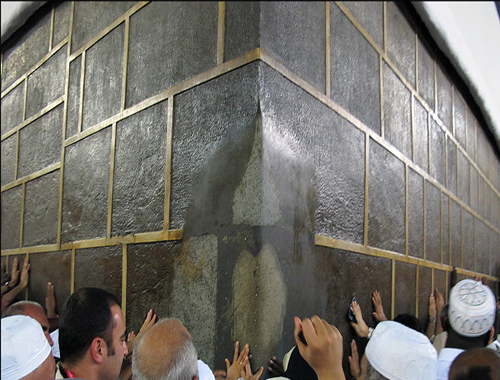Arbitration
- Details
- Hits: 2525
Arbitration
From time to time differences arise on various questions between the people living together. Historical and personal experience shows that no society has ever existed, between the individuals or the social organizations of which there have never been any differences. Such differences have always existed in all societies from the primitive and semi‑barbaric to the most advanced and civilized.
Usually the differences and clash of interests arise between two individuals, two organizations, two classes or two nations, in one of the two ways.
In many cases the difference is due to wrong thinking, wrong behaviour and unjust conduct of one or both the parties. In more or less every society there are individuals or groups which axe not spiritually and morally mature enough to be fair in all cases and not to violate the rights of others. Such people, if their personal interest demands, do not show any consideration for the rights of others. Their human sentiments are not strong enough to control their selfishness and greed. They neither possess noble moral character nor are they interested in seeking the pleasure of Allah. They do not fear the consequences of their misconduct in this world or in the next.
There is no doubt that lack or weakness of faith is the most common and the most effective cause of the differences. Anyhow, this cause is not peculiar to individuals. The same thing is true of classes and nations.
We often find in social life that two faithful and pious persons differ on a certain point. Here the difference is not due to their unjust behaviour but is due to the difference in determining what is right.
In such cases both the parties, according to their light believe that they are right, and each thinks that the other party is either involved in selfishness or is mistaken. Anyway, a pious man defends himself and what he believes to be his right with zeal and enthusiasm, but is never prepared to do a thing which he regards unjust and wrong.
It is a social duty to settle the differences
Any differences which may arise between individuals or social organizations should be settled as early as possible, for their continuance, whether they are due to any wilful transgression or mere misunderstanding, always adds to the conflict between the parties concerned and culminates in ugly events or at least perpetuates some sort of hostility and malice between them. Anyway, to make effort to settle the differences is a social duty.
The Qur'an urges the Muslims to try to adjust any disputes which may arise between them.
"Have fear o f Allah and resolve your differences" . (Surah al‑Anfal, 8:1) .
In tradition also much importance has been given to this question. The holy Prophet is reported to have said: "To settle the differences is more meritorious than prayers and fasting".
Various ways of settling differences
People usually adopt one of the following methods to settle their disputes:
(1) Personal force: Use of personal force is one of the oldest methods of settling a dispute. When a person is unable to settle a quarrel amicably, he at once jumps to fight either individually or with the help of his friends and supporters. This is called the law of the jungle, according to which the stronger is always right.
(2) Shouting, abusing and vilification: Some times the two parties involved in a quarrel do not have the power or courage to stand up to each other and to fight a battle. They instead of fighting in the field resort to another kind of battle, viz. the verbal battle. Either face to face or behind the back they shout at each other, abuse each other and vilify each other, till one party is reduced to submission.
Normally the more evil‑tongued and foul‑mouthed comes out victorious in these verbal battles.
Evidently this solution is of the same category as the first. It is even worse, because it shows the cowardice and faintheartedness of the parties concerned. Socially also it is more harmful.
The Qur'an totally disapproves vilification, except in cases where a wrong is done to someone, and he does not find anyone to do justice to him. In this case the only reaction which he can show is to raise an outcry and expose the aggressor.
"Allah does not like sbouting o f evil words unless a man bas been wronged. Allah is All‑Hearer,
All‑Knowing". (Surah al‑Nisa, 4:147).
(3) Passage of time: Where the disputing parties are not in a position even to make an outcry, they leave the matter to the factor of time in the hope that with the passage of the time fairness of their position will be established and their right will be restored. This is mostly the solution of the weak, though it is sometimes adopted by the discreet and cunning among the strong also. Anyhow, it is a solution which seldom leads to the desired result. More often than not it causes the right and the claimant both to be buried in the debris of history. Sometimes the passage of time merely means to give greater opportunity to the termites of dispute to eat up whatever social link exists between the disputants and turn them into absolute enemies of each other.
(4) Arbitration: When, with the social development of human life man reached a stage where he could understand social affairs better and could be benefited by his past experience to make a better future, ground was prepared for submitting the dispute to an arbiter for his judgement instead of using physical force, vilification or leaving the matter to the passage of time.
Did arbitration in the beginning have the form of intervention by the head of the family or the chief of the tribe? Did it then take the form of settlement of disputes by the priest etc. and lastly did it develop into the present form?
Did the weak first use this solution to protect themselves against the dishonest contrivances of the strong?
Or did the strong feel that they could achieve their objects more easily with the help of a judge hand‑picked by them? Or was it the mental growth which persuaded society to devise such a means of settling disputes as might be accept able to all?
Or is it an invention of the intellectuals to solve a problem faced by society?
Or is it a remedy suggested to society or its social leaders by their love for justice and defence of the oppressed?
Or has it some other origin?
To study the origin and development of arbitration the reader may refer to the books and articles written specially on this subject.
For the present it is enough to say that there can be two real motives of referring a dispute to an arbiter: (1) Natural instinct of man to defend himself and his rights, an instinct which is shared by other living beings also; (2) Love of the virtue of justice and a desire of mitigating social hardships.











